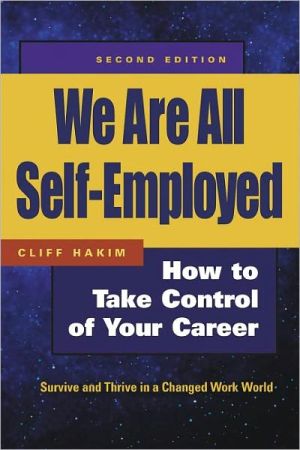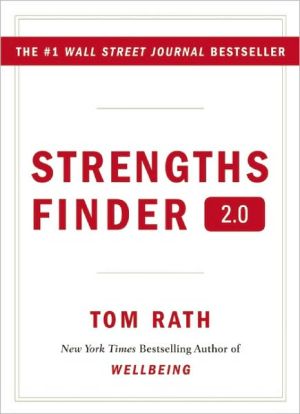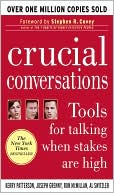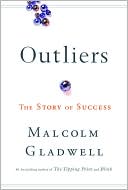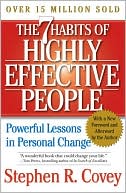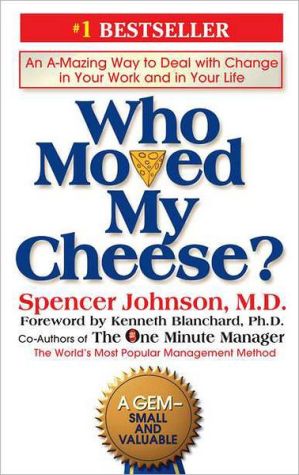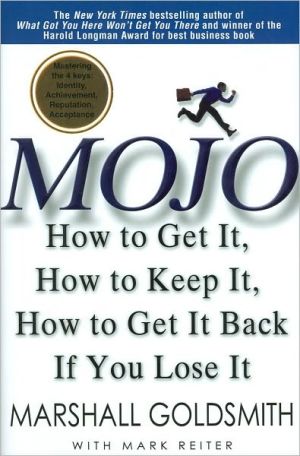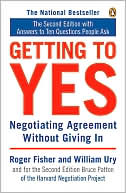We Are All Self-Employed: How to Take Control of Your Career: Survive and Thrive in a Changed Work World
Thinking of oneself as "self-employed" - and "the boss" of one's life and work - is the key to personal and professional development, says Cliff Hakim. He shows how to use his pioneering Worklife Creed as a basis for a new, satisfying philosophy of work and life. Providing a clear roadmap for finding purpose and passion in work, this revised edition includes a refined Worklife Creed, greater emphasis on taking full responsibility for one's worklife and understanding and expressing one's own...
Search in google:
Thinking of oneself as "self-employed" - and "the boss" of one's life and work - is the key to personal and professional development, says Cliff Hakim. He shows how to use his pioneering Worklife Creed as a basis for a new, satisfying philosophy of work and life. Providing a clear roadmap for finding purpose and passion in work, this revised edition includes a refined Worklife Creed, greater emphasis on taking full responsibility for one's worklife and understanding and expressing one's own uniqueness, and a "Who's the Boss?" section that acts as a practical and potent take-anywhere toolbox.
We Are All Self-Employed\ How To Take Control Of Your Career \ \ By Cliff Hakim \ Berrett-Koehler Publishers, Inc.\ Copyright © 2003 Cliff Hakim\ All right reserved.\ ISBN: 978-1-57675-267-8 \ \ \ Chapter One\ DEEPEN YOUR "SELF-EMPLOYED" ATTITUDE \ Ready yourself for a new era\ Congratulations for coming this far. You have found a personal anchor rather than relying on external moorings. You have confirmed in your heart and mind that blind loyalty—someone else will take care of me—is dead. You have struggled with old beliefs and have updated your loyalty to "conscious" loyalty or a self-employed attitude. Yes, full responsibility for your worklife is only proper, not selfish, in our unpredictable and demanding world.\ Are you ready to deepen your "self-employed" attitude? Reflect for a moment about a time when you felt forced or coerced into making a change. Did you actually change? Or, did you wait until no one was looking and then fall back into a familiar pattern? What price did you and your organization pay for this misalignment: Lost time? Disgruntled customers? Low morale? I promise that I won't make you, in any way, adopt a "self-employed" attitude. Instead, you can feel and explore your readiness.\ Whether I'm delivering a seminar on rethinking work or talking one on one with an individual about their development, I repeatedly notice that people go beyond the intellectual conversation to actually engage in renewal only when they are ready. Even for the most conscious, recognizing personal readiness can be an illusive challenge. Fear, crowded schedules, and impatience can thwart insight into your needs and your best intentions. I've heard clients say, for example, "I don't know what happened. In the past three or four years my company has changed, but I haven't!" The following is a list of questions that have emerged from my counseling practice. You can use them to assess, measure, and affirm your readiness. If you check three or more, you likely are ready to learn more about and create your self-employed attitude.\ Personal Readiness Questions\ Do you want to ...\ * make more worthwhile contributions?\ * take charge of your attitude?\ * reawaken your spirit?\ * fully express your passion?\ * overcome your work fears?\ * stay in your current job and grow there?\ * take control of your worklife?\ * better align with customers' needs?\ * maintain a clear sense of self while you work with others?\ * establish a new work attitude?\ * set a leadership example?\ * approach work with grace?\ * inspire others?\ Consider your answers to these questions. Change exists everywhere—inside and outside of you—and there is never a perfect time to learn and grow. I'll bet that you've already experienced the value of a self-employed attitude. And, and if you've read this far, you're ready or getting ready to advance your attitude.\ When Steve Piersanti, President of Berrett-Koehler Publishers, called me to ask if I'd consider a revision of We Are All Self-Employed, he said, "Two years ago you never gave me an answer." I paused and asked, "An answer to what?" "Two years ago," Steve responded, "I asked if you'd like to update We Are All Self-Employed. It's still a great title, and the market is hungrier than ever for the concept. You've already sold thousands of copies." I responded, "Back then I wasn't ready. Let me think about this for a few weeks and I promise I'll get back to you."\ It took me just a few days to respond. My "yes" was aided by three of the Personal Readiness Questions listed above: Do you want to make more worthwhile contributions? Do you want to reawaken your spirit? Do you want to set a leadership example?\ I answered Steve with this e-mail:\ Your call to me was timely. After rolling around some thoughts and searching my heart, I'm ready to commit to a revision of We Are All Self-Employed. Several people, including yourself, have said that the concept is more alive today than ever. Increasingly, my clients are accepting this belief as their truth and are showing their willingness and ability to take greater responsibility for their worklife. In addition, when I mention the concept more casually, at a party or school event, people nod as if to say, 'Of course, we are all self-employed!'\ How You Work and Live\ Whatever your work situation or career stage—company worker, business owner, part-time worker, unchallenged worker, laid-off worker, or new worker—this book shows you how to manifest a "self-employed" attitude. The following comparison highlights the minimum requirements for and distinguishes between the "employed" and "self-employed" attitudes. Attitude implies that each of us has the ability to learn and make choices about how we work and live. If you choose to live a self-employed attitude you will feel shaky at times, maneuvering through past and present internal obstacles and external barriers. However, your diligence and curiosity will lead you to inner security, your goals, and the opportunity to contribute the best parts of yourself in an unpredictable, formidable world.\ Separately, the six self-employed beliefs are the individual subjects of each chapter; each is talked about and illustrated in detail. Collectively they form a strong spine, supple and supportive, for leaving the mindset of dependence—the black hole—behind. Like the human spine, if one vertebra is out of alignment we feel pain and our posture suffers. As you read this book, you will refer to the six "self-employed" beliefs at different times and make it your goal to work toward their ultimate alignment—the you're-the-boss attitude. The following chart compares the practical applications of the employed and self-employed attitudes.\ The following pages explore why the six beliefs that comprise a self-employed attitude are critical to your worklife.\ 1. I Will Begin the Process of Change with Myself\ In the past, the company cocoon provided a secure place with income, benefits, title, advancement, identity, and stability. The cocoon protected the workers' identity while they waited for retirement or even for death.\ It's a new era. Now you must follow your own worklife path. How? Step out of line. When I was 12 years old, I took a trip with my family to Scarsdale, New York to visit my friend, Mark, and his family. An exciting part of our stay included a train ride into New York City. It was a weekday. All the passengers at the station seemed so serious. I listened for laughter, looked for a smile. The year was 1963. The majority of people boarding the train were men dressed in dark suits and white shirts. "Penguins," I thought! Each held a briefcase in one hand, with a paper, probably the Wall Street Journal, tucked underneath that arm. When the conductor shouted "ALLLL aboard" I watched wide-eyed. Each was lined up, dressed alike, carried the same paper, and marched past me onto the train. This depressing image of my possible future has stuck with me for almost four decades. Was this what I had to look forward to for my worklife? Was I expected to be the same as everyone else? I grew up in a home where individuality was fostered. My grandfather burned the grass, tilling the land and buying and selling real estate. My father, too, burned the grass as he mapped out his own strategy and carved out his sales territory. He worked at a large insurance company and said, "They never had to manage me. I focused on my goals and saw every day as one of opportunity. I earned more than the branch manager!" Now I have more words for my childhood experience. Many of these men worked for large corporations. "Corporate" beings! They had a dress code and an unspoken employee/employer agreement: Produce for us and we will guarantee you a job. Furthermore, remain loyal and we will take care of your career.\ A whole different world later and people are still lined up. These people may not be wearing dark suits, but colleagues, acquaintances, and clients—men and women—have all lamented their narrow and shallow paths. They have said, "I'm bored with what I do" or "What I do pays the bills, but I'm unhappy. Work takes so much out of my hide!" or "I envy my sister—she loves her work. Somehow, she had the courage to use her aptitudes. Instead, I did what my parents expected of me." In each situation, these people are stuck—lonely, frustrated, and restless. They are marching to someone else's drummer, not their own.\ Accepting the idea that we are all self-employed changes the way we view our entire lives. "It's very scary to me sometimes. It takes time to assimilate," says Jean, director of an external research program at a computer manufacturer. "Eighty percent of the time I say I want to take command. For the other 20 percent, I'm still scared. Everybody has got to come to the point of being their own change agent."\ Expecting that your employer and customers will continue to change is realistic, but expecting that they will change in ways that will benefit you is not. Identifying and mastering your own strengths—your skills, values, purpose, passion, and aptitudes—increases your control over your job productivity and career mobility regardless of external circumstances. The dependent mindset—that is, hoping others will change and then blaming them for what doesn't work for you—gives others your power and leaves you stuck in unsatisfying situations.\ And the day came when the risk it took to remain tight inside the bud was more painful than the risk it took to blossom. —Anais Nin\ 2. I Will Face the Dragon—My Work Fears\ At a Harvard University sponsored lecture by the Association for Part-Time Workers, guest speaker Dr. Harris Sussman, strategic consultant, opened by saying, "We are all self-employed." He reported that the fastest-growing group of workers consists of people working from home. These people, who work at all levels of diverse occupations—accounting, real estate management, financial planning, sales, and publishing—are connected to other individuals and organizations via telephone, fax, and e-mail. In 1987, Charles Handy wrote, "By some estimates, one-quarter of the working population will be working from home by the end of the century. From home is different than at home. The home is a base, not a prison." The end of the century has passed and Mr. Handy's prediction is here. In my own neighborhood, Elles the graphic designer works part-time from home and part-time at a television station. Ben the musician works part-time from home. The rest of the time he's on stage. And Josh the programmer visits his clients to assess their needs and brings his work home, too. Sally is a program manager for a large company. She visits the home office once every two weeks to meet with her team and customers. Via e-mail and telephone she stays connected with her staff.\ We live in an era of necessary and multiple work alternatives—full-time, part-time, job sharing, and telecommuting. If you tend to be afraid because times have changed and will continue to change, it will be harder for you to see the virtue of alternatives and to take action. The majority of clients I've seen over the past years are working differently today. Generally, they overcame their fears of change through self-examination and deliberate, incremental action. As it is with most change, what is initially foreign and chaotic becomes accepted and routine down the road. Rarely did they know where they were headed; still, they delved into what was purposeful to them and, step by step, replaced fear with meaningful results. Ken, senior executive with a consumer goods manufacturer, said, "I had no interest in becoming a corporate executive. I got my MBA anyway 20 years ago. I recall, feeling desperate to do something with my life. I talked to no one about my choice ... only observed my father. Now, thinking about following my heart is both exciting and VERY frightening, but I don't have a choice. I know I can be happier. I owe this to myself, and my children." Meg, a marketing manager, overcomes her fear by keeping her "ultimate goal" in mind, "to find a new job that allows the greatest expression of myself and my talents, where fun happily coexists with accomplishment."\ Change can liberate people from situations—positions and titles—that no longer work or benefit them or others. The clients mentioned above overcame their central fear: If they let go of what they know, they would land in a permanent, cavernous void. Freed from their title and willing and able to grapple with their fears and fixed expectations, they tapped into their personal resources and sought work that fit their own growth and organization/customer needs.\ 3. I Will Integrate Independence and Interdependence\ This book is a result of both a combination of my thoughts and a compilation of reactions, responses, and stories that I gathered in person or by telephone from working people across the United States—people from the dot-com bust, educational institutions, large corporations, small businesses, and nonprofit associations. When I talked with people about the notion that we are all self-employed, I was thrilled to discover the numbers of people who reacted positively. Some said, "That's it!" A few said, "Imagine if more people throughout the world could learn to think this way." One responded, "I can't imagine not taking control of my life. There's no security anymore. Being dependent is death." Another commented, "Your concept is in sync with these times." My question obviously and invariably evoked a visceral reaction. Although some didn't have all the words to explain their response, most understood that we are all self-employed. They wanted to continue the conversation, know more, and hear what others had to say.\ I began each interview by asking, "When I say, 'We are all self-employed,' what does this mean to you?" Most often, the initial response was "Responsibility." Curiosity led to inquiry. I then asked, "What does responsibility mean?" The word responsibility captures the central theme of this book. It is the ability to act independently and interdependently—to be your authentic self (purposeful and passionate), collaborate with others, and work productively. We live in a world where self-leadership—taking responsibility for knowing yourself and for engaging in deliberate and constructive thought and contribution—is increasingly a core virtue. It is a choice to go beyond survival to success and satisfaction in worklife. Dependence is a succumbing to your fears. It will always hold you back from reaching your potential. Celia, a teacher in transition, said, "A while back I had an operation on my thyroid. For three or four days others took care of me—a necessity for a while, and a seductive one at that. Then I realized that I needed to take responsibility by not letting health concerns become an excuse for not living." Layoffs, unchallenging work, demotion, and personal challenges are part of worklife. They won't go away if you simply bury them.\ 4. I Will Work With, Not Work For, My Organization and Customers\ Over the past decade many of my clients moved from one dot-com driven job to the next. Several were swept into the tidal fervor—naming their price and getting it. They profited. But many, those I knew and didn't know, did not. Today, economic buoyancy is deflated. Now you are called to "partner" differently, to think and act collaboratively and in terms of working with others. You, the individual, must distinguish yourself by knowing your heart—what you are passionate about—and how your passion can add unmistakable value to the customer. Clamping on to the latest trend will not offer you security or eradicate your fear. Trends are not permanent solutions, but temporary way stations. Selling and using your skills alone is not enough either.\ (Continues...)\ \ \ \ \ Excerpted from We Are All Self-Employed by Cliff Hakim Copyright © 2003 by Cliff Hakim. Excerpted by permission of Berrett-Koehler Publishers, Inc.. All rights reserved. No part of this excerpt may be reproduced or reprinted without permission in writing from the publisher.\ Excerpts are provided by Dial-A-Book Inc. solely for the personal use of visitors to this web site. \ \
Contents\ Preface....................ix\ Acknowledgments....................xv\ Introduction Burning the Grass....................1\ 1. Deepen Your "Self-Employed" Attitude Ready yourself for a new era....................9\ 2. Beginning the Process of Change with Yourself Start with your own personal growth....................29\ 3. Facing the Dragon—Your Worklife Fears Replace fear with passion and purpose....................73\ 4. Integrating Independence and Interdependence Be yourself and collaborate with, and contribute to, others....................107\ 5. Working With, Not For, Your Organization and Customers Do work and build relationships based on respect, equality, and competence....................141\ 6. Committing to Continuous Learning View your worklife as an ongoing journey....................179\ 7. Creating Meaningful Worklife Work and live, believing that the world needs you and that you can make a contribution....................229\ Bibliography....................251\ Index....................253\ About the Author....................263
